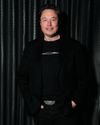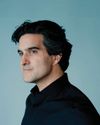J.D. Vance first caught the public’s attention with his 2016 memoir, Hillbilly Elegy, a populist howl about Appalachia that accuses elites of betraying the white working class. Since then, Vance has cultivated some of the wealthiest elites in tech and venture capital—including former Google chairman Eric Schmidt and the billionaire VC Peter Thiel—to help him win a U.S. Senate seat and, in July, the Republican nomination for vice president.
With Donald Trump’s ticket on the rise, observers in the business community may well wonder what approach Vance will bring if voters put him in the White House. Will it be a radical populist agenda? Or will Vance deliver on the priorities of his well-heeled friends in Silicon Valley? It’s too soon to say, of course. But based on his record, Vanceonomics seems indifferent or even hostile to the traditional business priorities—such as laissez-faire industrial policy and easy access to goods and labor—that have been the bedrock of the Republican Party’s platform for over a century.
In the ordinary course of things, there would be little interest in the views of the vice president—a position its first occupant, John Adams, described as the “most insignificant Office that ever the Invention of Man contrived.” But 2024 is no ordinary election. Vance would be a proverbial heartbeat from the presidency under a chief executive who would turn 83 in the final year of his term. And Trump’s desire to cultivate a new generation of MAGA leaders suggests that he may give Vance a broad remit to pursue his own agenda—in part to set him up as his heir in 2028.
This story is from the August - September 2024 edition of Fortune US.
Start your 7-day Magzter GOLD free trial to access thousands of curated premium stories, and 9,000+ magazines and newspapers.
Already a subscriber ? Sign In
This story is from the August - September 2024 edition of Fortune US.
Start your 7-day Magzter GOLD free trial to access thousands of curated premium stories, and 9,000+ magazines and newspapers.
Already a subscriber? Sign In

THE NEW GOLD RUSH
Gold prices have soared amid global uncertainty and a central-bank-driven buying spree. But this time, the gold mining industry looks very different.

A New Season for Giving
As the PGA TOUR kicks off its 2025 season alongside its sponsors in Hawai'i, the organization is continuing to make an impact in local communities.

WELCOME TO ELONTOWN, USA
The small town of Bastrop, Texas (pop. 12,000), has become a home base for Elon Musk's business empire. What comes next is anyone's guess.

100 MOST POWERFUL PEOPLE
Our inaugural, authoritative ranking of the leaders whose innovation and impact have elevated them to the top of the business world.

ARE CEO SABBATICALS THE ULTIMATE POWER MOVE?
WHEN VENTURE capitalist Jeremy Liew and his wife were dating, they talked about how one day they would take a year to travel the world. \"That's how we'd know we'd made it,\" Liew says.

WHAT ARE THE BEST METRICS FOR MEASURING A STARTUP'S POTENTIAL?
IN HIS 2012 ESSAY \"Startup = Growth,\" Paul Graham talks about a 5% to 7% weekly growth rate as table stakes for startup success. If you're growing 10%, he says, you're doing \"exceptionally well.\"

TECH POLYMARKET'S ELECTION ACCURACY MADE SHAYNE COPLAN A STAR-BUT AN FBI RAID POINTS TO TROUBLE AHEAD
IN NOVEMBER, Shayne Coplan had a week he'll remember for the rest of his life: He got a phone call from the highest echelons at Mar-a-Lago. He went on TV for the first time. And his New York City apartment was raided by the FBI.

WHY BIG TECH IS THE NUCLEAR INDUSTRY'S NEW BEST FRIEND
OVER THE PAST several years, Big Tech firms like Google and Microsoft have trumpeted ambitious plans to go carbon-neutral, or even carbon-negative, by 2030. But then the generative-AI boom came along and threw a giant wrench in their plans.

WHAT PALMER LUCKEY, THE MAN REVOLUTIONIZING WARFARE, IS AFRAID OF
PALMER LUCKEY, the founder of the $14 billion Al-powered weapons startup Anduril, has become the face of change in the defense industry.

GLOBAL BUSINESS BRACES FOR TRUMP 2.0
AROUND THE WORLD in 2024, voters chose change: in South Africa, France, Britain, and Japan. But nowhere does the anti-incumbent trend matter more than in the United States.